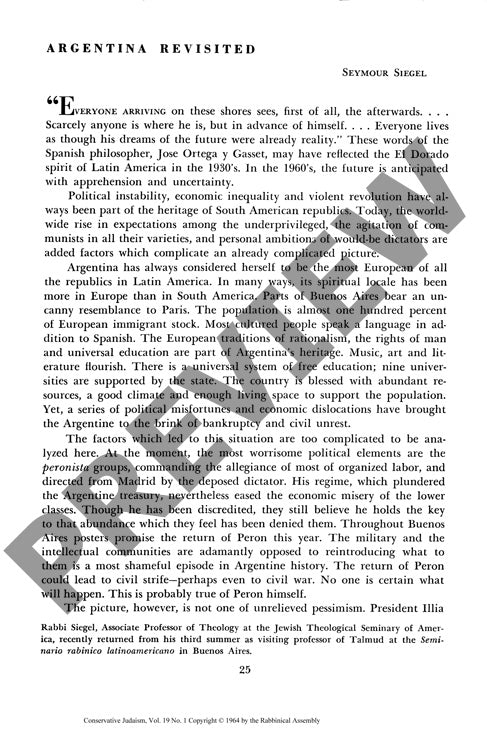Argentina Revisited
Couldn't load pickup availability
Argentina's 400,000-member Jewish community navigated a complex landscape of political uncertainty and economic volatility during the 1960s, while simultaneously experiencing unprecedented religious revitalization. Based on ethnographic observations at the Seminario rabínico latinoamericano in Buenos Aires, the analysis reveals a striking contrast between external pressures and internal growth. While the community faced anti-Semitic threats from the extremist group Tacuara and encountered Arab League propaganda promoting anti-Zionist sentiment, Jewish religious life flourished under Rabbi Marshall Meyer's leadership. The Latin American rabbinical seminary expanded from four to twenty-three students and achieved historic government recognition, while Conservative Judaism gained significant momentum. Through systematic community assessment and participant observation, the research demonstrates that although anti-Semitic dangers warranted vigilance, their severity was often overstated in contemporary reports. The Jewish community's resilience manifested through strengthened institutions and pioneering interfaith dialogue initiatives. These findings highlight the critical importance of sustained investment in religious education and community development programs for Argentine Jewry's continued vitality.

More Information
-
Physical Description
-
Publication Information
Published 1964
ISBN
-
Publication Credits
Seymour Siegel

